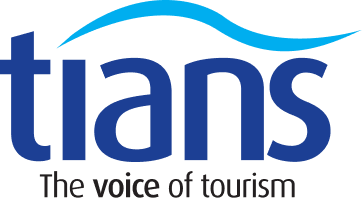Two Out of Five Tourism Operators surveyed in Canada Report Being at Risk of Closing
June 20, 2023New research commissioned by the Tourism Industry Association of Canada shares what will happen to Canada’s tourism industry without government intervention.
June 20, 2023 (OTTAWA ONTARIO) – Forty-five % (45%) of Canada’s tourism businesses report that they are likely or somewhat likely to close within the next three years without government intervention into their mounting debt load, according to new research commissioned by the Tourism Industry Association of Canada (TIAC) and its provincial and territorial counterparts.
The survey finds that 55 % of tourism sector businesses who share their views are somewhat not or not confident that their company will be able to make debt payments (principal and interest) that are due over the next two years. This includes loans through the Canada Emergency Business Account (CEBA), the Regional Relief and Recovery Fund (RRRF), and the Highly Affected Sectors Credit Availability Program (HASCAP).
“An overwhelming percentage of tourism businesses who participated in the study say that they face tremendous financial pressures due to mounting debt loads from both government and private loans that allowed them to weather the storm of COVID-19 pandemic-related business interruptions, new operating costs and labour force shortages,” said Beth Potter, President and CEO, TIAC.
The survey was conducted by NANOS on behalf of TIAC with support from the Provincial and Territorial Tourism Industry Association (PTTIA). The research gauged the outstanding debt load from federal government loans, lines of credit and other credit facilities that sustained their operations during periods of inactivity related to the pandemic, and the businesses’ level of confidence in their capacity to service this debt.
Nearly a third (30 %) of tourism businesses report having more than $250,000 in total outstanding debt from loans, lines of credit or other credit facilities and 22 % state that their total current debt load from loans is between $100,000 and $250,000.
On average, these businesses report taking on federal government loans of:
- $62,263 related to the CEBA;
- $50,559 related to the RRRF; and,
- $56,388 related to the HASCAP.
The main impediment to servicing existing debt is the lack of profitability linked directly to the slow recovery from the COVID-19 pandemic according to 58% of participating tourism businesses followed by onerous repayment terms (19%) and an overly high debt burden (15%).
“For many Canadian tourism businesses, government loans provided through the CEBA, RRRF, and HASCAP provided crucial support that offered employers economic security and assurances during one of the most volatile periods in our sector’s history,” added Potter. “Unfortunately, financial pressures on tourism operators persist. While the CEBA provided a vital lifeline that enabled them to retain staff and cover basic costs such as utilities and rent when conditions were at their most dire, many tourism businesses struggle to return to profitability while facing new financial uncertainties related to costs and an increasing debt load.”
Debt forgiveness was cited by 83% of survey respondents as the top solution to their tourism business’ limited capacity to service debt while 12% indicated that an extension to repayment periods is a necessary solution. The majority (or 64 %) of businesses surveyed say they would likely be able to repay 50 % of the non-forgivable portion of their federal government loans if the option was to be made available to them.
“Further measures are needed to ensure the full economic recovery of tourism businesses,” said Walt Judas, Chair of the PTTIA and CEO of the Tourism Industry Association of BC. “While the CEBA and its related programs served as a vital financial bridge during the height of the COVID-19 pandemic, these businesses remain in a volatile position. Yes, doors are open, and travellers are returning to Canada, but the research is clear that greater flexibility is needed to allow businesses to get out from under the massive financial implications of the pandemic.”
With an alarming 45% of businesses stating that they are likely or somewhat likely to cease operations if there is no further government intervention and no change related to existing loan terms, Canada’s tourism businesses both big and small are under significant financial strain.
Based on these findings, TIAC and its provincial and territorial partners are calling on the federal government to help address this important issue by:
- Extending the zero-interest repayment deadline for the CEBA loan to December 31, 2025;
- Increasing the forgivable portion of the CEBA loan to $30,000 (or 50%) if fully repaid before December 31, 2024, and maintaining the current forgivable portion of $20,000 (or 33.3%) if fully repaid by December 31, 2025; and,
- Modifying the RRRF and HASCAP loans in a similar fashion to allow more time and flexibility in repayment terms.
Follow this link to view the full report and tabulations.
Methodology:
Nanos conducted an online survey of 149 financial controllers and accountants of businesses in the tourism sector, between April 28th and May 12th, 2023. Participants were recruited from a list gathered during phase I of the research via an open-link survey hosted by Nanos and promoted by TIAC.
About TIAC/AITC
Founded in 1930 to encourage the development of tourism in Canada, TIAC serves today as the national private-sector advocate for this $102 billion sector. Based in Ottawa, TIAC takes action on behalf of Canadian tourism businesses and promotes positive measures that help the industry grow and prosper. Visit TIAC/AITC at tiac-aitc.ca.
About PTTIA
The Provincial and Territorial Tourism Industry Association is comprised of 13 provincial and territorial advocacy associations representing tourism and hospitality businesses across the country. It works as a committee under the auspices of TIAC to help inform the organization on tourism industry issues and opportunities.
-30-
Media Contact:
Shaz Mamdani
tartanbond
[email protected]
437-972-1366
Krystal Carter tartanbond [email protected] 613-697-4057





